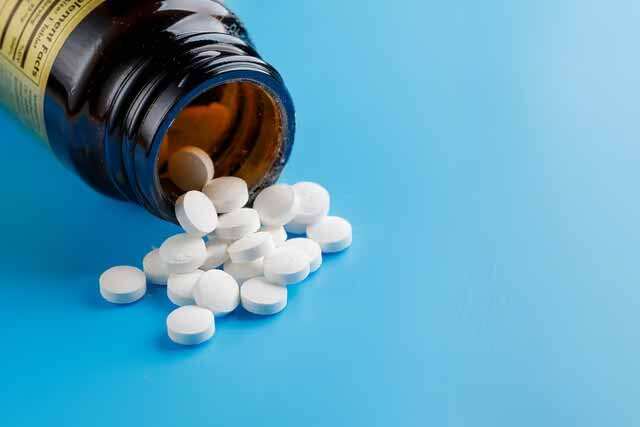
Extra zinc may help improve the immune system response for those who are low in this vital nutrient. Don’t overdose!
Most people would like to improve their immune function at this time of year. Viruses that cause colds and influenza are everywhere and even vigorous hand washing may not protect you from coming down with an upper respiratory tract infection. Could extra zinc help? Are there potential hazards?
Extra Zinc and Immunity
Zinc is one of those minerals that gets very little respect. People often take calcium and magnesium, but rarely even think about zinc. Yet this mineral is crucial for the immune system. It activates T cells, which are crucial for combatting bacterial and viral infections. Your natural killer cells cannot function fully without adequate levels of zinc.
A research team from Tufts University recruited 25 older people who were low in zinc to participate in a double-blind, placebo-controlled study. The research was published in The American Journal of Clinical Nutrition (March 2016). It demonstrated that supplementing older residents in a nursing home with 30 mg of extra zinc daily for three months raised zinc levels in the bloodstream.
In addition, the investigators found that the group that got 30 mg of zinc compared to placebo (5 mg. of zinc) had better immune function. The number of T cells in their bodies went up, a measure of immune system enhancement. The T cells seemed more responsive in that they were able to proliferate more effectively in response to stimuli that simulated infection.
The Consequences of Low Zinc Levels
The authors of this study had previously discovered that older people living in nursing homes frequently have low levels of zinc in their bodies. When this crucial mineral is deficient, there is a greater likelihood of developing pneumonia. The death rate is also higher when people are low in zinc.
Who’s At Risk of Low Zinc?
Nursing home residents are not the only people with low zinc levels. Older people in general may be more vulnerable to this mineral deficiency. One suggestion is that senior citizens have trouble absorbing zinc as well as younger people. Vegetarians may also be a greater risk of zinc deficiency. People taking blood pressure drugs that contain diuretics (hydrochlorothiazide for example) or ACE inhibitors (such as captopril, enalapril or lisinopril) could also be low in zinc.
Don’t Overdose
The recommendation that our colleague Tieraona Low Dog, M.D., suggests is 15 to 25 mg of extra zinc daily for those on diuretics or ACE inhibitors. The Tufts researchers gave their older nursing home residents 30 mg daily. We would discourage anything over that since too much zinc can be toxic. The upper limit is 40 mg daily.
Extra Zinc Could Interfere with Copper Balance
Q. When the COVID-19 pandemic started, my husband began taking a bunch of supplements to enhance his immune system. He read that zinc was especially helpful against viral infections. As a result, he has been taking 50 mg daily for the past three years. Is this safe?
A. The recommended dietary allowance (RDA) for zinc is 11 mg per day, so your husband has been taking considerably more than he may need. Zinc has direct antiviral activity as well as playing an important role for the immune system and even the cardiovascular system (International Journal of Molecular Sciences, April 12, 2023).
Daily doses of 50 mg of zinc taken for many weeks or months could lead to copper deficiency. This may reduce immune function, undermining your husband’s goal. It may also lower helpful HDL cholesterol. The Food and Nutrition Board of the National Academies of Sciences has established 40 mg of zinc as the tolerable upper intake level for adults.
The RDA for copper is 900 micrograms (mcg) for adults. Our bodies use it in processes of energy production, neurotransmitter synthesis and iron metabolism, among others. Shellfish, liver, nuts and seeds, whole grains and chocolate supply this essential mineral.
Important Notice: This article was also published at www.peoplespharmacy.com by Joe Graedon where all credits are due.
Disclaimer
The watching, interacting, and participation of any kind with anything on this page does not constitute or initiate a doctor-patient relationship with Dr. Farrah™. None of the statements here have been evaluated by the Food and Drug Administration (FDA). The products of Dr. Farrah™ are not intended to diagnose, treat, cure, or prevent any disease. The information being provided should only be considered for education and entertainment purposes only. If you feel that anything you see or hear may be of value to you on this page or on any other medium of any kind associated with, showing, or quoting anything relating to Dr. Farrah™ in any way at any time, you are encouraged to and agree to consult with a licensed healthcare professional in your area to discuss it. If you feel that you’re having a healthcare emergency, seek medical attention immediately. The views expressed here are simply either the views and opinions of Dr. Farrah™ or others appearing and are protected under the first amendment.
Dr. Farrah™ is a highly experienced Licensed Medical Doctor certified in evidence-based clinical nutrition, not some enthusiast, formulator, or medium promoting the wild and unrestrained use of nutrition products for health issues without clinical experience and scientific evidence of therapeutic benefit. Dr. Farrah™ has personally and keenly studied everything she recommends, and more importantly, she’s closely observed the reactions and results in a clinical setting countless times over the course of her career involving the treatment of over 150,000 patients.
Dr. Farrah™ promotes evidence-based natural approaches to health, which means integrating her individual scientific and clinical expertise with the best available external clinical evidence from systematic research. By individual clinical expertise, I refer to the proficiency and judgment that individual clinicians acquire through clinical experience and clinical practice.
Dr. Farrah™ does not make any representation or warranties with respect to the accuracy, applicability, fitness, or completeness of any multimedia content provided. Dr. Farrah™ does not warrant the performance, effectiveness, or applicability of any sites listed, linked, or referenced to, in, or by any multimedia content.
To be clear, the multimedia content is not intended to be a substitute for professional medical advice, diagnosis, or treatment. Always seek the advice of your physician or other qualified health providers with any questions you may have regarding a medical condition. Never disregard professional medical advice or delay in seeking it because of something you have read or seen in any website, video, image, or media of any kind. Dr. Farrah™ hereby disclaims any and all liability to any party for any direct, indirect, implied, punitive, special, incidental, or other consequential damages arising directly or indirectly from any use of the content, which is provided as is, and without warranties.








